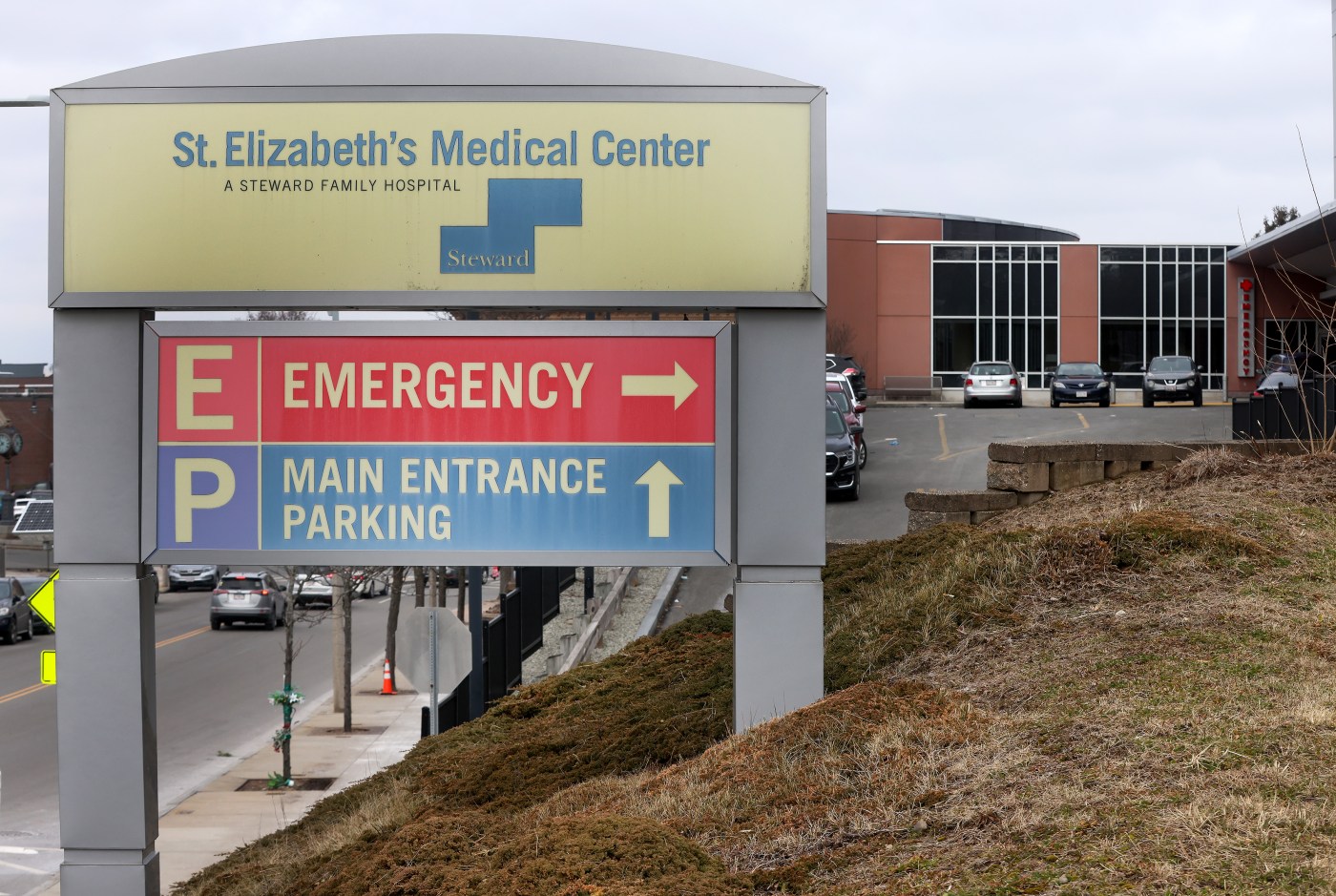
Boston braces for what comes next with Steward Health Care system
The Steward Health Care system crisis has Boston officials feeling ill.
Steward owns nine hospitals in Massachusetts, including two in Boston, St. Elizabeth’s Medical Center in Brighton and Carney Hospital in Dorchester.
“In this time of uncertainty, we don’t know what the full impact of this crisis will be on these two facilities,” said Bisola Ojikutu, Executive Director of the Boston Public Health Commission, calling the hospitals “critical anchor institutions for their communities.”
The Boston Public Health Commission does not have regulatory authority over the hospitals, Ojikutu said, but does plan to use “existing resources” for extra support, including expanding the Mayor’s Health Line capacity and deploying community health workers.
Councilor Liz Breadon said during the Committee on Public Health, Homelessness and Recovery hearing Thursday that “this crisis goes way beyond our scope.”
But, she added, how to help the community can’t be ignored.
“We are here to articulate the needs of our communities and try and advocate for a timely solution that will move us away from this for-profit model, which is not working, and return to a semblance of a more of a nonprofit situation that will support our most vulnerable communities and our most vulnerable neighbors,” she said.
Steward Health Care’s deep financial challenges came out over the winter, as the company announced they were $50 million behind in rent, and a slew of lawsuits from unpaid contractors and employees received attention.
Gov. Maura Healey sent a letter on Monday telling the Steward CEO Ralph de la Torre to find new operators for the hospitals and leave the Massachusetts market “as soon as possible” and demanding the company turn over long-sought legally-mandated financial documents by Friday. The state has also deployers Department of Public Health teams at all nine Steward hospitals to monitor for safety concerns.
Several nurses and staff at the Boston hospitals came forward to share their experience at the hearing, speaking on how much the community relies on their services and the capacity and resource concerns.
Related Articles
Do we simply not care about old people?
The powerful constraints on medical care in Catholic hospitals across America
Rep. Lynch questions Steward Health Care’s financial transparency, warns of ‘escalation,’ subpoenas
Biden administration will commit $100 million toward women’s health research
Southern lawmakers rethink long-standing opposition to Medicaid expansion
“We’ve lost to dozens and dozens of maternity beds, and behavioral health beds, detox beds — virtually every promise that Steward made has been broken in some way, shape or form,” said Ellen McGinnis, a nurse at St. Elizabeth’s. “We can’t have any more talk about closing hospitals or diminishing services. There’s been enough of that. We need to get on with the hard work of making sure that we continue to take care of everybody.”
Many speakers cited the equity concerns in the communities impacted and the growing capacity issues in the areas.
Despite the onslaught of bad news for patients and employees at Steward hospitals, speakers at the meeting emphasized that no more hospitals are immediately on the chopping block.
“We want to reassure patients, workers and community members that closure is not imminent at the moment,” said Breadon, noting hospitals are required to give 120 day notice before closing. “People are coming and saying, ‘Are you open?’ Yes, our hospitals are open and hopefully they will continue to be open for the foreseeable future.”


